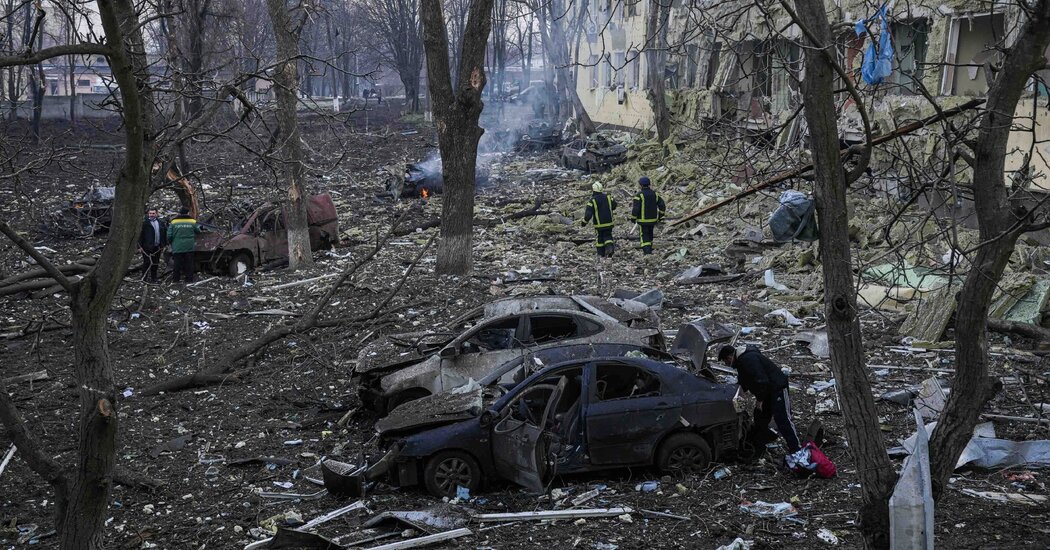
“All those remaining in Grozny will be considered terrorists and will be wiped out by artillery and aviation,” an official military edict warned. Though the statement was rescinded, Russian forces shelled the city indiscriminately, blockading its exits to prevent residents from fleeing.
Mr. Putin, whom President Boris Yeltsin promoted from virtual anonymity to prime minister around the war’s outset, asserted himself as the face of the conflict, visiting front lines and pushing for escalation.
When Mr. Yeltsin resigned, Mr. Putin became acting president, a position he formally won in an election dominated by the war. He built his presidency around the conflict, asserting presidential powers and curbing political rights as wartime necessities, championing it ever since as a great triumph.
That conflict, along with the Russian military’s adaptations for a new Europe in which NATO forces now vastly outmatched their own, led to new sort of doctrine.
“Assault by troops, which previously predetermined the outcome of the battles, will be used today, and even more so in the future, only to complete the defeat of the enemy,” A.A. Korabelnikov, a Russian officer, wrote in a 2019 white paper.
Instead, artillery and air power would do much of the work, inflicting devastating damage from afar. But because much of this technology remained Soviet-era, strikes were often indiscriminate — which Moscow had anyway embraced in Chechnya.
When Russian forces entered the Syrian war in 2015, that country’s Moscow-allied military was already massacring civilians at scale. Seeking to avoid an Afghanistan-style quagmire, Russian air power pulverized Syrian cities from above, cementing the Chechnya model.




